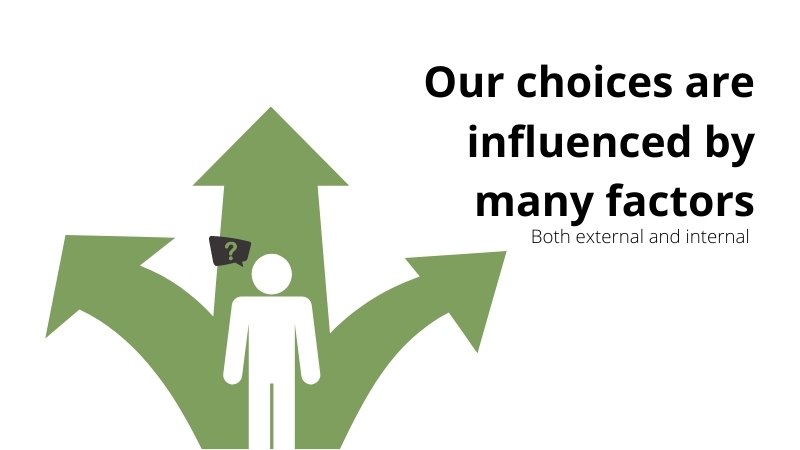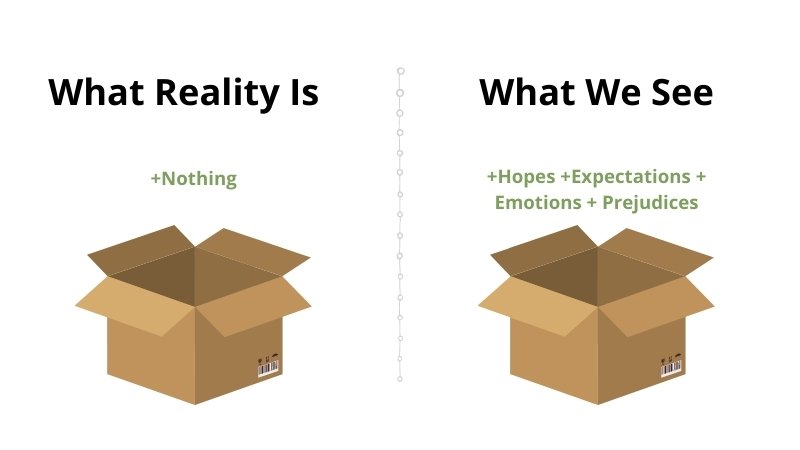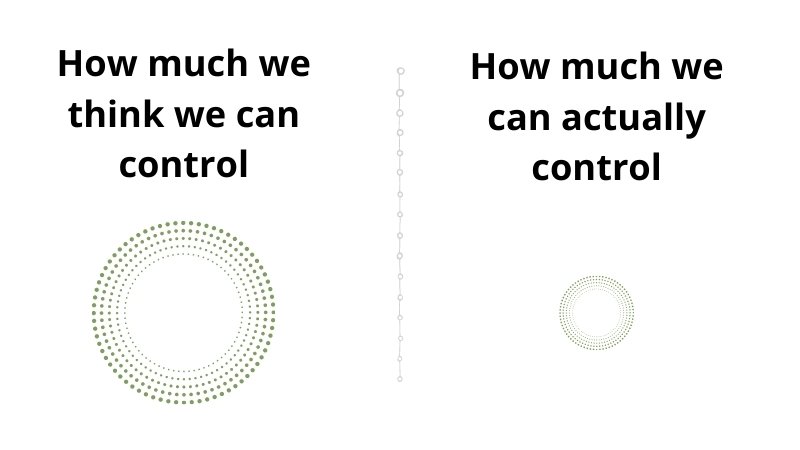You Are Not So Smart Summary talks about why you are not as smart as you think. And how so many logical fallacies and biases taint your perception of this world. In simple words, it discusses why most of what we think is wrong and how most of our decisions are biased.
[amazon box=”1592407366″ template=”horizontal”]
About the Author
David is a science journalist.
But he also does a lot of things like:
- photography
- editing
- voiceover
- teaching
Learn more about David Mcraney here
You Are Not So Smart Summary (PDF)
Before I start this summary, I want to let you know that you might not agree with most of the ideas discussed in this summary.
It’s fine!
The reason is:
We all have an EGO that tries to avoid anything that goes against our beliefs.
So if someone tells you that you are not so smart, chances are, you’ll reject that idea and hate that person even more.
On the flip side, if someone tells you that you are smart, you’re more likely to believe it. (Well, unless you are self-aware.)
But if you read the ancient scriptures, you’ll find that the path to true awareness passes through getting rid of our EGOs and seeing the reality as it is.
Even what we think is real doesn’t entirely belong to reality.
Don’t bother. We’ll talk about this later.
We love to think that we are intelligent beings who can make logical decisions that would help us.
But as this summary will unfold, you’ll realize that you are not so smart.
Neither am I.
Even the author of this book is not so smart.
We are human beings. And we can’t be perfect.
Again, we don’t know how a perfect human being looks like, right?
We will always make mistakes.
The good thing is:
We can learn. And improve ourselves.
Alright, so without further ado, let’s dive right in.
1. Your choices are not your own

You have to be serious!
You might think, “All of my choices are mine.”
Unfortunately, you are only deluding yourself.
The author talks about a concept called “PRIMING.”
In simple words, your unconscious mind is continually being influenced by your environment.
If you dig deeper into psychology, you’ll find that we have two minds:
- Conscious Mind
- Subconscious Mind
Who do you think has more control?
It’s our subconscious mind.
Did you think of the conscious mind? Well, most people think like this.
Why? Because this is the one we are aware of most of the time.
But research shows that our subconscious mind determines most complex decisions.
Our subconscious mind does most of the hard work.
Here is an analogy:
Our conscious mind is the captain of our ship of life. And the subconscious mind consists of all the crew members. (I borrowed the idea from The Power Of Subconscious Mind by Joseph Murphy)
Okay, enough about it.
So how does our subconscious mind affects our choices?
The thing is:
“We pick up cues from our environment.”
Everything that is outside you makes your environment. Pretty simple, right?
This is where we are primed. Our environment is not in our control.
Think about the time when you go for a walk outside. You see lots of advertisements everywhere.
You hear stories. You see people doing their chores.
When you watch YouTube, you hear different opinions.
All those videos prime you to think in a certain way.
Everything you see, hear, or experience changes your worldview.
The caveat is:
You don’t have any control over it.
You might think, “I choose what to allow to penetrate my mind.”
Believe me. You don’t.
You don’t even realize when the billion-dollar companies market you.
Maybe sometimes you realize that the advertisements on your social media are to sell you. But you say, “I’m smart. I don’t get influenced easily.”
The author says that you are most vulnerable to priming when you are unconscious.
Let’s go back to our previous example.
When you use social media, you get lost scrolling through all the posts and videos.
After wasting a couple of minutes (sometimes hours), you realize, “What the hell was I doing all this time?”
Have you ever paid attention to what happens when you get lost in the ocean of social media? You become less conscious of your actions.
You go on autopilot mode. That’s the ideal time when the advertisers prime you.
So now that you understand that you can be primed, how can you guard yourself against priming?
Well, it isn’t easy to discuss that topic here in its entirety.
But still, I’d say that that first thing you can do to guard yourself against priming is, accept that you are a human being and you can be primed.
Unless you accept this fact, it’ll be hard for you to avoid being primed.
Another thing you can do is become more aware of your thoughts.
Read some books on psychology. (I’ve written plenty of book summaries)
2. We don’t see the reality as it is

This may be an “Aha” moment for you!
Most of what we experience comes from inside.
Allow me to explain.
Let’s say you are watching a movie.
Now, the same movie will be a different experience for different people.
Here is why:
Although the movie is the same for everyone, how we interpret the things that happen in it is altered by emotions, beliefs, and prejudices.
But when we experience anything, we assume that other people must also be experiencing it the same way.
So how can you apply this learning in your life?
Well, this flaw in our perceptions affects everything in our life.
One must realize that we all are experiencing a different version of the same reality.
We get so lost in our thoughts that we forget that other people are also lost in their mental world.
What we think of as common sense isn’t common sense at all.
Another thing that you must know:
Our memories aren’t accurate.
Whenever we see anything, we start comparing it with our memories. We create mental models to reduce complexity.
So even our memories are altered.
As a result, our experience of the same reality keeps changing over time.
Most people never see reality as it is.
They see a version that best suits them. They tend to accept a version that helps protect their ego.
They tend to avoid the part of reality that questions their choices and potentially attack their ego.
In simple words:
Most people are living a delusional life because they do not see reality. They see a story that complies with their beliefs.
They are deluding themselves.
The author says that nobody can delude us more than we can.
It’s quite right.
Nobody can deceive us more than we can.
So every time you experience something, ask yourself:
Do I see reality as it is?
Is the reality being tainted by my stereotypes and prejudices?
See the reality like a scientist who sees the reality as it is. If scientists saw only what they wanted to see, science wouldn’t exist today.
Unfortunately, not many people care.
As long as they see their own version of reality, they are happy.
They don’t want their happy story to end.
They want to keep living the story where they are the hero.
This helps most people keep themselves sane, the author says.
To some extent, not seeing reality helps you avoid mental agony.
But if done to a greater degree, it may cause harm to your reality.
3. We are emotional, irrational, and illogical beings
We are funny people. (Not kidding!)
We talk to ourselves and brag about how logical we are, and nobody can outsmart us.
But in reality:
Most of our choices are driven by emotions, not by logic.
Remember, when you go to a market place. You buy more than you need.
You buy most things based on your emotions.
Then you tell yourself a story that proves how logical your decision was.
Okay, for one moment, let’s assume every human being made logical choices.
If it were true, the earth wouldn’t be facing so many issues like climate change, deforestation, etc.
After all, we are emotional, illogical beings.
We want rewards and seek instant gratification.
We lose out on opportunities that could make our lives better than it is right now.
Maybe the author is wrong. Maybe I’m wrong.
If human beings were all logical, many big industries didn’t even exist.
Yet, they are flourishing these days.
Think of the time when you enter into a debate.
Do you stick to the facts?
Do you compare both the ideas in favour and against?
Don’t you tend to protect your ego?
Take a look when politicians debate.
They try to use many logical fallacies to prove they are right. They want to make people believe that they are always right.
When they are about to lose, they start attacking the other person’s position. They try to defend themselves – even when they are wrong.
Why do they do it?
It’s because they are humans too.
We even lie to ourselves to protect our ego.
The author has written 48 chapters talking about how illogical we are.
If we were all logical, how did the author manage to write about all those researched fallacies and biases?
That’s because researchers and psychologists have seen those tendencies over and over again.
You may think, “Sorry, but these things are not true for me.”
I want you to reconsider and think again.
4. We accept what confirms our beliefs and reject everything else
So we are talking about Confirmation Bias here.
We hardly realize when we experience confirmation bias.
It happens when we only seek opinions and ideas that confirm what we already believe in.
For instance:
You might believe that aliens exist.
Now, if you are confirmation biased, you’ll tend to reject those ideas that say “aliens don’t exist.”
See how we keep fooling ourselves?
A person might seem like he is doing proper research, but he might be only be seeking opinions that confirm he is right.
Highly egocentric people tend to experience this bias more than those who are less egocentric.
No need to judge anyone here. We all have ego inside of us.
Some people have more while some have less.
That’s a fact.
The only way to tackle confirmation bias is to consider both sides.
Talking about the same example about the aliens, If you really want to know whether aliens exist or not, read all the researches.
Don’t ignore the ones that contradict your beliefs.
5. We live in an illusion of control

We love to think that our circumstances in our control.
Unfortunately, we can only control ourselves.
Thinking that everything is in your control gives you a sense of calm.
It helps you bring a sense of order.
How weird, even our thoughts are not in our control.
Yet, we somehow keep thinking that we have control over our life.
Does this mean that you should stop trying to control situations around you? No.
The point is:
One shouldn’t be deluding himself and keep believing that he has figured everything out.
Nobody can predict the future.
Let’s talk about the stock market.
Nobody can predict it, right?
But experts believe that just because they know the tactics and have the experience, they can predict the future.
Sometimes they are right. Sometimes they are wrong.
But the fact remains: Humans can’t control or predict the future.
Of course, coincidences can happen. They happen all the time.
But still, they are coincidences. They weren’t predicted.
This also one type of bias when people believe that there is some magical power behind the coincidences.
So they connect a few events and try to make them meaningful. (Also known as Apophenia)
It takes us to the next lesson…
6. Life itself has no meaning (It is constructed by humans)
This is such a bold statement.
And you can debate for hours on this.
The author says the meaning is self-construct.
Our brains love to give meaning to every thing.
Everything we experience, we feel as if it has some reason.
If you believe what the author says, it’d mean that life has no meaning.
We give it meaning to avoid an existential crisis.
Did you read the Man’s Search For Meaning by Viktor Frankl?
Viktor discussed the existential crisis in his book.
Existential crisis happens when people don’t know why they exist.
When we give meaning to our lives, we become peaceful inside our minds. It gives us a sense of purpose. It gives us a direction.
A path opens up in front of us. All we need to do is walk through it.
Okay, so should we give meaning to our lives or not?
That’s hard to say.
But I suggest that you find some meaning in life.
When you have a meaning or purpose, you get hope.
Also, a lot of problems like an existential crisis are solved automatically.
Even if it is constructed by humans, “meaning” is powerful.
Ultimately, it’s your choice. It depends on you whether you want to give your life any meaning or not.
Suggested reading: Ikigai (Summary)
7. We depend on current information to make decisions – even if the current information is wrong
It’s hard to decide when you don’t have any information inside your brain.
To compare, we often require an anchor.
Let’s understand this with an example.
Let’s say you have to buy a smartphone.
Now how do you determine the price of it?
First of all, the person or company who is selling it determines the price.
You only decide whether you are willing to pay for it or not.
Doesn’t it happen?
Unless you get some ideas about the prices of other smartphones, you can’t determine whether it’s worth paying a particular amount of money or not.
It’s known as the Anchor Effect.
Here is the caveat:
The anchor is not always in your control.
Shopkeepers or companies can create it in your mind.
Remember, you always need a reference point to calculate the worth of a commodity.
You look up for cues in your environment to find that anchor point.
It’s hard to avoid that because we are conditioned to think that way over the centuries.
Either you create the anchor yourself or the others create one for you.
The Key Takeaways From You Are Not So Smart Summary
- Your choices are not your own.
- We don’t see the reality as it is.
- We are emotional, irrational, and illogical beings.
- We accept what confirms our beliefs and reject everything else.
- We live in an illusion of control.
- Humans create all meaning.
- We require an anchor to estimate and compare the worth of any commodity.
- The Art Of Thinking Clearly by Rolf Dobelli
- Freedom From The Known by J Krishnamurthi
- The Voice Of Knowledge by Miguel Ruiz
You Are Not So Smart Review
[amazon box=”1592407366″ template=”horizontal”]
I highly recommend you to read this book.
The reason is:
It challenges your thinking and tells you how you can be primed to think in a certain way.
This book helps you understand various logical fallacies and biases that we fall into and make wrong choices in our lives.
You also learn why you are one of your biggest friends and foe when making complex decisions.
The best thing about this book is:
The author has used conclusions from scientific experiments done by researchers and psychologists.
All those help you better understand why we are not as smart as we think.
This book is broken down into more than 45 chapters. Every chapter is atmost 2-3 pages long.
The paper quality of the book that I got from Amazon was not that good. But still, it was not a big deal.
Overall this book was a great read.
You can always come back to this book and find multiple ways you are wrong.
And become smarter!
Go ahead and feel free to purchase this book. You won’t regret buying it.
Now it’s your turn
Thank you for investing your time here!
I hope you got terrific value from this summary.
Now you tell me:
What lessons did you like the most?
If you have any questions, feel free to write them in the comment section below.
And feel free to share this summary with your friends and family members and help them grow.
